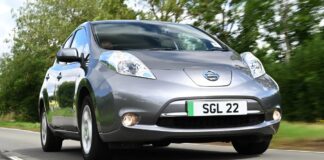The upcoming vehicle tax for electric cars, as currently proposed, risks frustrating drivers who have already embraced electric vehicle (EV) ownership. While the concept of a per-mile tax is logically sound, the proposed system’s design fails to account for the innovative and digitally-driven approaches EV drivers have developed to maximize efficiency and minimize costs.
Зміст
The Shift to EVs and the Expectation of Future Taxation
Electric vehicle adoption is growing, and many drivers understand that some form of taxation will eventually replace fuel duty. However, the proposed tax system falls short of harnessing the opportunities presented by the modern EV driving experience. Instead of leveraging technology to encourage smarter driving, it introduces an unnecessarily cumbersome process.
Current Practices in Smart EV Ownership
Smart EV drivers actively participate in a digitally-enabled ecosystem focused on cost optimization. This extends beyond simply charging at night to benefit from lower electricity rates.
- Intelligent Tariffs: Services like “Intelligent Octopus Go” offer exceptionally low rates when renewable energy is abundant.
- Dynamic Alerts: Charging networks proactively notify drivers of favorable rates and availability.
- Grid Balancing: In the future, EVs may even contribute to grid stability, allowing owners to receive payments for temporarily providing energy back to the grid.
- Solar Integration: EV owners with solar panels can significantly reduce or even eliminate charging costs.
Why the Proposed Tax System Misses the Mark
The core of the problem lies in the proposed method of payment: drivers would pay an estimated amount in advance and then attempt to claim a refund for any unused miles. This approach contradicts the dynamic and responsive nature of smart EV driving.
- Lack of Incentives: The system provides no incentive to drive during off-peak hours, utilize cheaper rates, or improve driving efficiency.
- Unnecessary Complexity: The advance payment and refund process adds complexity and frustration to a system that should be simple and straightforward.
- Missed Opportunity: Rather than encouraging sustainable practices, the system ignores the potential for EVs to contribute to a more flexible and renewable energy grid.
A Better Approach: Embracing Technology
The government’s rationale for this system—to keep costs down and avoid the perception of constant tracking—is understandable. However, the current proposal is a blunt instrument.
Even road tolls, with their variable pricing based on traffic flow, would offer a more intelligent approach.
Ultimately, a more effective tax system would:
- Integrate with smart charging networks.
- Offer variable rates based on time of day and grid conditions.
- Reward efficient driving habits.
The current system represents a missed opportunity to build a future-proof tax system that aligns with the evolving dynamics of electric vehicle ownership and the broader transition to a sustainable energy future. By failing to embrace the digital tools and data available, it risks alienating EV drivers and undermining the broader adoption of electric vehicles






















